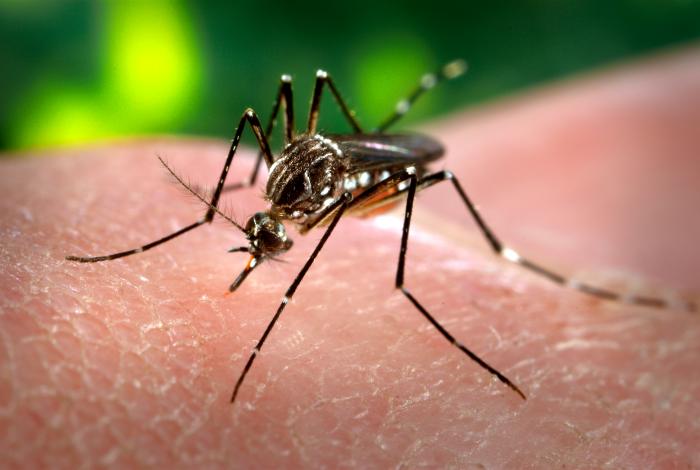
The Aedes aegypti mozzie – sucks to be you.
It is estimated over 100 million people contract dengue fever each year. This potentially fatal mosquito-borne virus has been rapidly spreading at a global scale in recent times.
And while the importance of mozzies in our ecosystem is understood and accepted, there are also many people out there that hate them with the fire of a thousand suns (yes we should love all animals, but they could also just chill out).
Designer mozzies
The carrier species, Aedes aegypti, lives in tropical areas across the globe. In our region, it is commonly found in South East Asia. As well as being home to hundreds of millions of people, the countries in this area are also tourism hot spots for Australians. And dengue does not discriminate.
Fighting dengue is a global challenge. A project from our Synthetic Biology Future Science Platform, led by Macquarie University’s Dr Maciej Maselko, is doing just that – using synthetic biology.
It’s a man’s world (well, after some minor mozzie modifications)
Synthetic biology is a rapidly growing research area and industry. It brings together principles from biology and engineering to design and construct new biological entities (such as enzymes, genetic circuits and cells) or to redesign existing biological systems.
Synthetic biology is used for important applications like bioenergy, sustainable biomaterials, new therapeutics, biosensors, and food production. Maciej’s work focuses on genetically engineering mosquitoes to only produce male offspring. This is because male mozzies don’t bite and therefore spread infectious diseases.
“This is accomplished by introducing a genetic circuit that makes females unable to survive outside of the lab. And another circuit which makes any offspring from a mating between a wild female and engineered male either non-viable, or a sterile male,” says Maciej.
In the case of an outbreak, these ‘designer mozzies’ could be introduced into local populations to breed. The wild females would then only produce dead or sterile offspring, which would crash the population and the threat.
A future without fever?
According to Maciej, the project is progressing well. He said it could be possible to begin field trials within the next three years. However, there are ethical, social and regulatory challenges that the application of this type of research can pose.
Our new Responsible Innovation Future Science Platform has been created to respond to the significant challenges presented by innovation in science and technology. In the case of Maciej’s project, there would be extensive consultation with local communities before any trials commenced.


19th November 2019 at 8:49 am
Dear Mr.Nick
My name Sherly, from SMAN 11 Semarang, Indonesia. I am 17 years old. I want to give my opinion about it. I agree with designer mozzies. because this can reduce the population of aedes aegypti mosquitoes. with the reduction of mosquitoes, making the spread of dengue fever also reduced. so people who have dengue disease have little or no. That is all and thank you. (4/33)
19th November 2019 at 7:55 am
Hello,Mr.Nick Kachel.My name Ayu Safitri from Eleven High School Semarang. Yes, I’m Indonesian. Let me give you a few sentences. I like your article that discusses designer mozzie mosquitoes. And with research conducted to reduce mosquitoes that have made people uneasy especially when the rainy season has arrived. And let me give you a question. How is the research conducted?
16th August 2019 at 4:19 pm
It seems a bit unethical to swat mozzies as well. But I do.